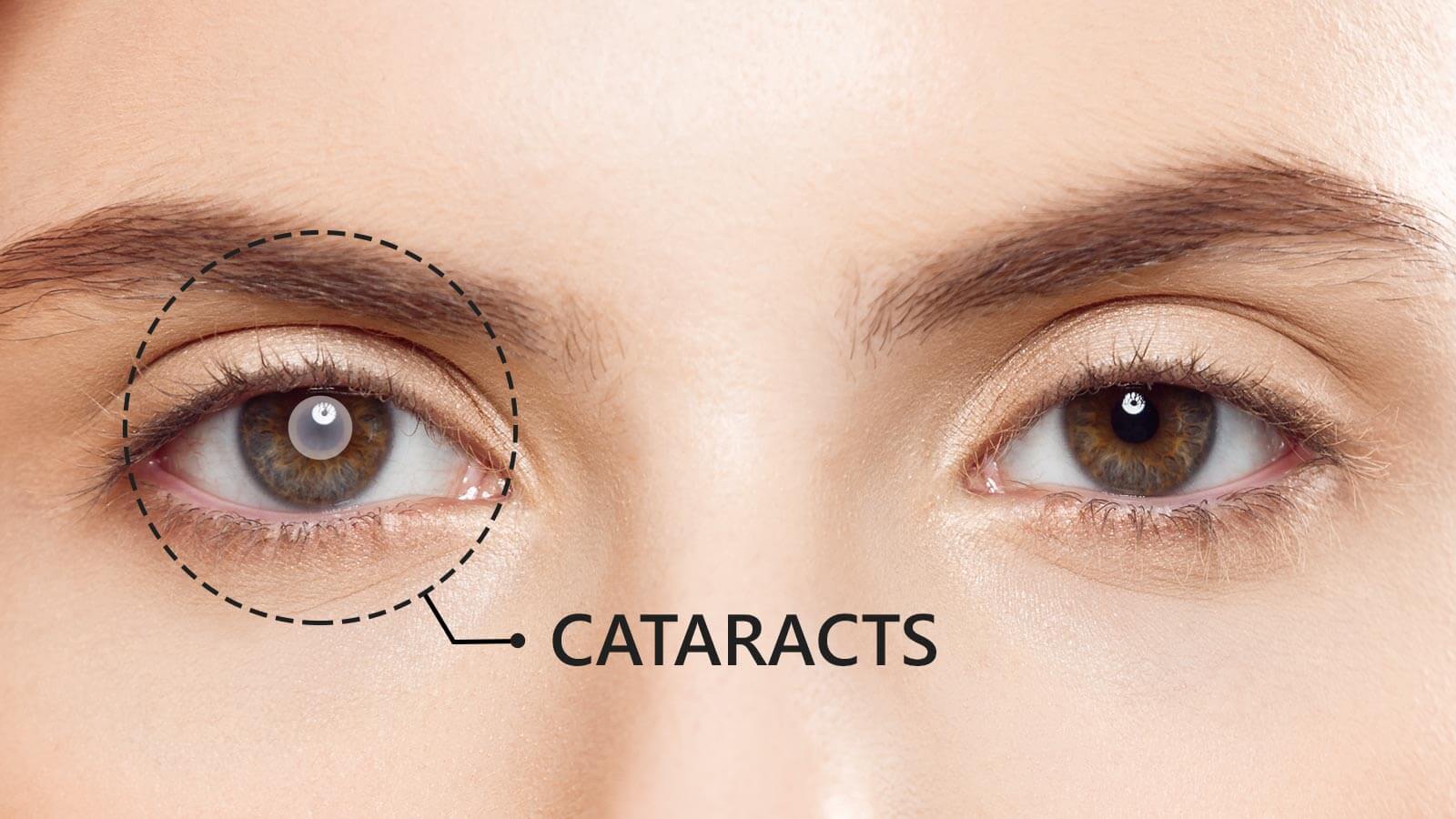
Cataract Services
About Cataract
A cataract happens when the lens in the eye starts to fog, which results in vision impairment. Unfortunately, cataracts are an unavoidable part of the aging process. They begin after the age of 40 because the proteins that make up the eye’s lens usually start to deteriorate and/or clump together. The cloudiness eventually worsens and blocks light from arriving at the retina.
Symptoms
The initial symptom of cataracts is increased foggy eyesight that isn’t corrected by a patient’s current glasses prescription. Most patients begin to notice they require brighter light to be able to read. Other symptoms can include decreased night vision, unusual glare or halos, and eyesight with a general yellowish tint.
Causes
Cataracts are an inevitable part of aging and the natural breakdown of the proteins within the eye’s lens. This process happens to all people, though there are additional behavioral and health factors that often exacerbate the condition. Behavioral choices, such as using tobacco products, drinking too much or too often, and heavy sun exposure, have been associated with cataracts, as have health conditions, including diabetes mellitus and high blood pressure. Other factors that can aggravate the condition include:
- Genetics
- Some medications, like steroids
- Degenerative myopia
- Certain kinds of eye surgery
- Injury to the eye
Cataract surgery and lens option
Viewed as both incredibly safe and exceedingly reliable, cataract surgery, referred to as phacoemulsification, is among the most commonly performed surgeries worldwide. Cataract surgery is usually performed in the hospital operating theatre, usually with topical anaesthesia (eye drop anaesthesia), although occasionally local/general anaesthesia is preferred. In most cases, an intraocular lens implant is placed in the eye to restore the focusing power of the natural lens. Stitches are usually not required to close the wound. Patients go home from the hospital soon after surgery. There is no bandage on the eye after surgery.
If you need cataract surgery, we will remove the natural lens within your eye and exchange it with a new artificial intraocular lens (IOL). IOLs, also known as lens implants, are extremely advanced and can effectively function like your natural lens. Often, the new lens may improve ongoing refractive issues as well. We will assess several factors, including your overall eye health, visual acuity, and daily activities that will help us select the best type of IOL for you. At Navkar advanced eye, retina and dental care; our goal is to help patients improve their quality of life. We provide them with varied range of premium IOL options – Trifocal IOLs, Toric IOLs, Trifocal toric IOLs, Extended depth of focus IOLs, Hydrophobic monofocal IOLs, Monovision. We offer the most advanced, premium implants for patients suffering from cataracts. This includes both and presbyopia and astigmatism-correcting intraocular lenses (IOLs) that can restore a full range of vision and often eliminate the need for eyeglasses.
With an experience of performing over 10,000 cataract surgeries, Dr Mit Doshi at Navkar advanced eye, retina and dental care is a prolific cataract surgeon.
Our Pricing Plan
- Dental Implant$45.00
- Another Feature$50.00
- Another Major Feature$55.00
- Emergency Care$25.00
- Prescription Drugs$30.00
- Specialist Visits$20.00
- Rheumatology$25.00
Meet Our Doctors

Dr. Mittali Doshi Desai
B.D.S. (Nair), Ex - Registrar (KEM) Hospital, Sion Hospital, Consultant Dental Surgeon
Make an AppointmentOpening Hours
- Saturday - Monday: 09:00 am - 10.00 pm
- Tuesday - Thursday: 09:00 am - 10.00 pm

